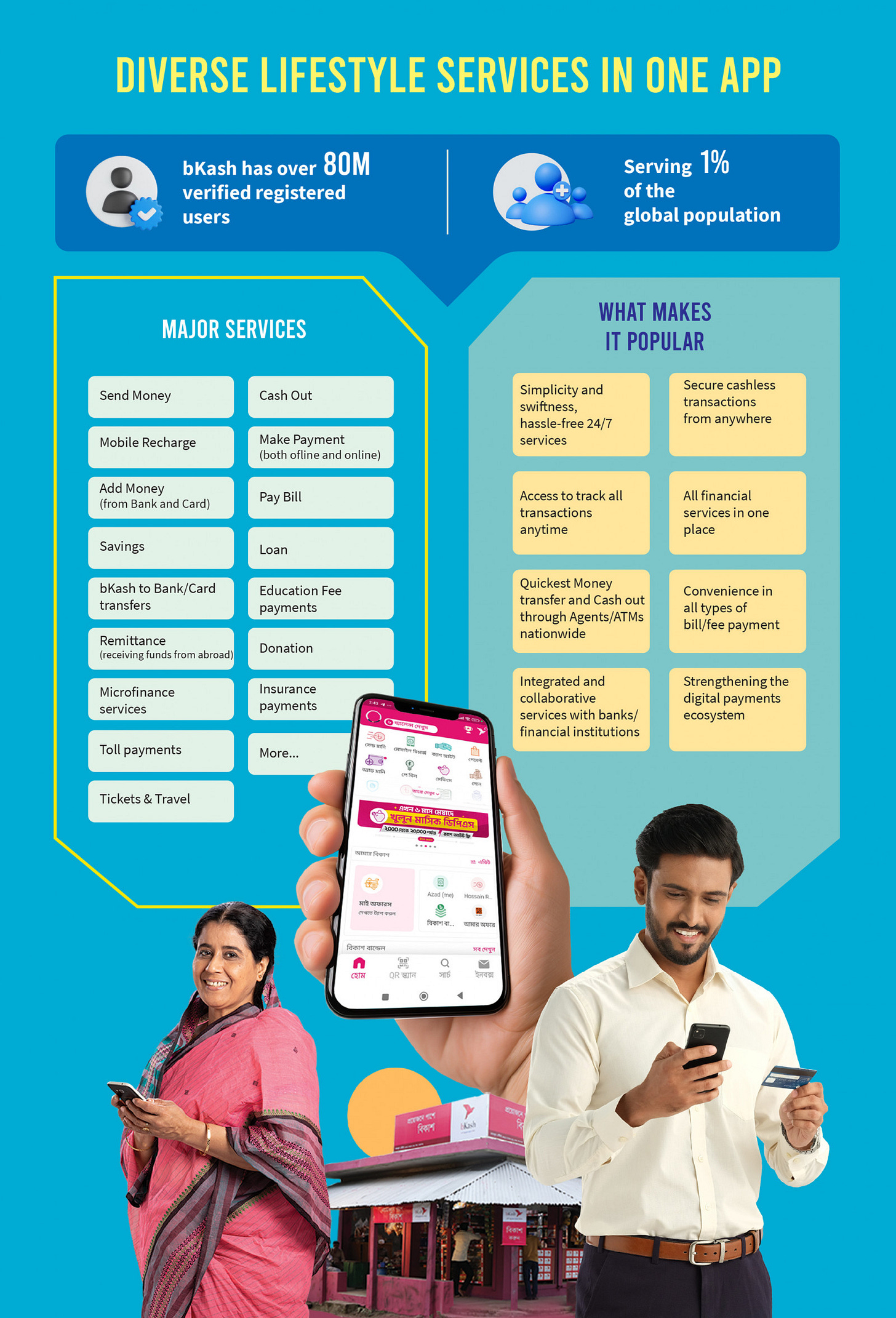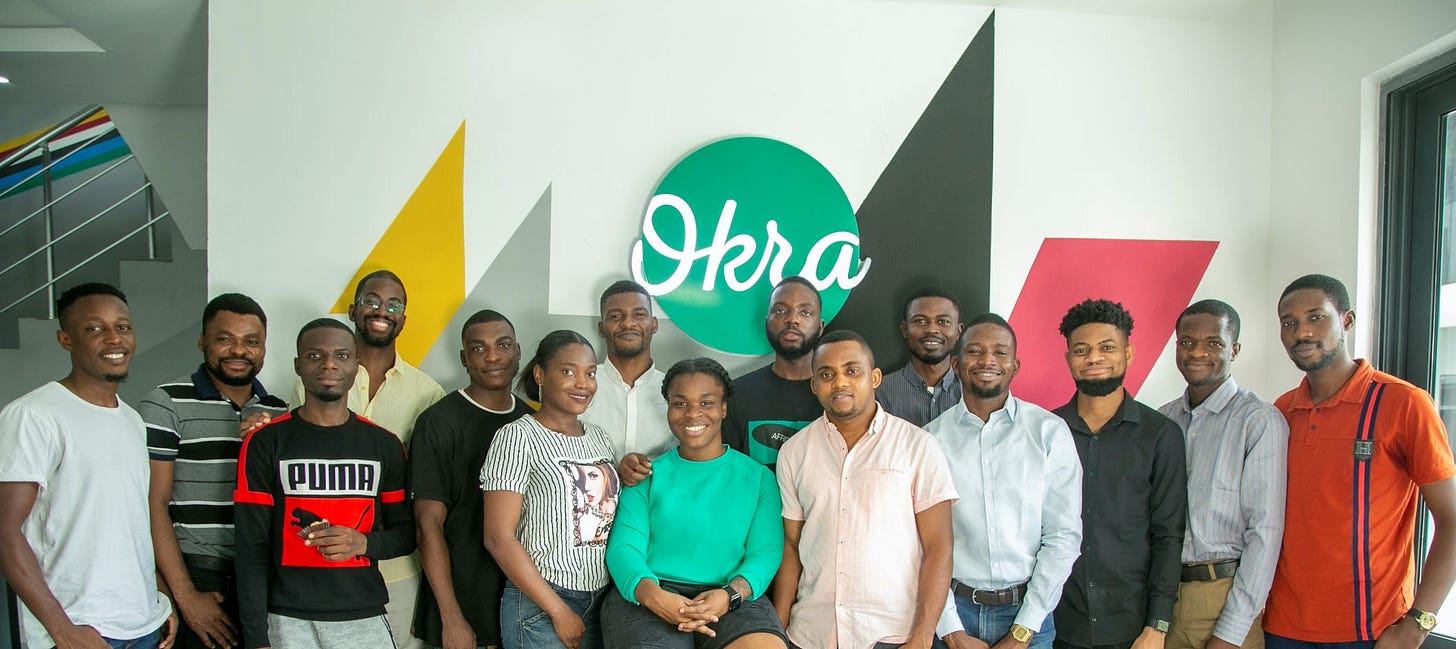🌯Inclusive FinTech Knowledge Bites [Week #72]
Wave raises $137M to scale agent-led fintech. bKash blends cash and digital in Bangladesh. Okra’s downfall reveals risks of API commodification.
Hey,
I’m Hugo Pacheco, and this is The Barefoot Economist, a newsletter where, every week, I break down three essential stories on last-mile technology, emerging market innovation, and financial inclusion. Consider it your bite-sized takeaway to stay informed, sharp, insightful, and easy to digest.
This week on The Barefoot Economist:
⚙️ Agents, Algorithms, and a $137M Boost: Wave Fintech Machine
💡 Cash & Clicks: bKash Bangladesh’s Financial Lifeline
⚔️ How API commodification crushed Okra
Enjoy your reading!
⚙️ Agents, Algorithms, and a $137M Boost: Inside Wave’s Fintech Machine

Wave Mobile Money just secured a $137 million debt round to scale its low-cost mobile money operations across Africa, led by RMB and backed by development financiers like BII, Finnfund, and Norfund. The funding gives the startup new firepower to deepen its footprint in current markets and unlock access in new territories, with a clear north star: radically affordable financial services for the underbanked.
Since launching in 2018, Wave has built a lean, mobile-first platform serving 20M+ monthly users through 150,000 agents, challenging telco incumbents by slashing transaction costs from up to 10% down to 1%, while making deposits and withdrawals completely free.
🌯 The Barefoot Insight
The playbook? Scale through trust, price, and infrastructure-light agility. With licensing wins like Cameroon (via CBC), and repeat recognition on YC’s Top 50 earners list, Wave is proving there is such a thing as “venture-scale” financial inclusion.
The Strategic Use of DebtWave’s shift toward working capital debt rather than dilutive equity signals maturity. Development Finance Institutions (DFIs) are betting on unit economics, not just vision. This also reflects growing investor appetite for inclusive fintech infrastructure as a stable, high-impact asset class.
Debt = fuel to scale a tested engine, not a lifeline for survival.
The Power of the 1% ModelWave’s flat 1% fee for P2P and its zero-cost CICO (cash-in/cash-out) model neutralise traditional pricing pain points. It’s more than affordability, it’s a trust hack in cash-preferred economies.
This model matters where every franc counts, and it builds behavioral stickiness across offline and online journeys.
Agent Network = Moat + BridgeWith 150K+ agents, Wave has created a dense distribution backbone that serves both as customer acquisition and liquidity infrastructure. It’s not just growth, but it’s resilience. The field force helps Wave bypass smartphone gaps, literacy barriers, and last-mile complexity.
Think of agents not as middlemen, but as localized fintech APIs.
Partnerships over PermitsThe Cameroon expansion via CBC shows a shift in go-to-market: partnerships with licensed FSPs offer regulatory lift, speed to market, and risk mitigation, especially in tightly controlled Francophone markets. Wave isn't fighting regulators; it’s riding with them.
Smart market entry means less time on licensing, more time on liquidity.
YC's Unicorn in Utility ClothingWave’s inclusion in YC’s Top 50 earners for two straight years (2023–2024) is rare air for an African startup. But this isn’t glamour; it’s grit. Their model proves you don’t need to build a super-app to win; just solve for real pain, at scale, and cost.
Wave is a utility, not a luxury. That’s why it works.

This raise isn’t about hype. It’s a scale-as-infrastructure play, using affordable tech to stitch together payment rails that governments and telcos have failed to universalise. If Wave sustains its low-cost model while maintaining compliance and liquidity, it could become Africa’s informal-to-formal money OS.
🧩 Curious how Wave reengineered mobile money across Africa?
We’ve just published a visual breakdown of Wave’s business model innovations mapped using the Strategyzer canvas and annotated through the lens of agent-led distribution. Visit the Business Model Mapping section under The Agent Network OS to explore!
💡 Cash & Clicks: How bKash Became Bangladesh’s Financial Lifeline
Fintech gets wrong about “lifestyle” and what bKash got incredibly right.

Unlike many mobile wallets that push features, bKash builds rituals. Its true innovation is orchestrating hybrid journeys: QR at the street stall, auto-pay at home, cash-in with the local agent, and bank transfers at night, all under one trusted brand. This is what “lifestyle” really means: you don’t think about it anymore. You just bKash it.
🌯 The Barefoot Insight
Any fintech chasing “lifestyle” status must bridge bytes and bodies. If your stack ignores dusty marketplaces, paper invoices, or bus fare coins, you’re a chrome-plated toy. bKash shows the money is in the moments between swipes: where offline meets online and trust meets habit.
Lifestyle = On-Chain + Off-StreetDigital app convenience only clicked after bKash covered the physical last mile: 24/7 CICO at 400 k agents, QR stickers in tea stalls, and even bus conductors waving a magenta code instead of loose change.
Trust > TechFear of “money lost in the ether” was killed with hyper-visible agents (“human ATMs”) and relentless PIN/OTP education. Security feels personal, not abstract.
Habit Loops, Not Feature ListsAuto-pay salaries to Grandma, auto-top-up your SIM, and auto-sweep spare change into DPS savings. Repetition turns finance into muscle memory.
Verb Status = Growth FlywheelWhen users say “bKash me”, onboarding costs drop to ~zero and network effects compound. Brand becomes infrastructure.

Offline Rails Unlock New SKUsStreet-corner CICO + QR lets the app launch credit scoring, nano-loans, insurance, and social-commerce escrow because it already owns settlement at every touchpoint.
Distribution as a Defensive MoatCompetitors can copy UI; they can’t spin up 1 M QR spots or retrain 400 k cash agents overnight.
Playbook for Builders ElsewhereAnchor on cash reality first, digitise second.
Design for repetition & fear reduction, not novelty.
Own a verb, not just downloads.
⚔️ How API commodification crushed Okra

Okra didn’t just tap out; it got steamrolled by price wars, infrastructure bills, and a data‑commodity trap. If you’ve been banking on “open finance” as a silver bullet, think again. These lessons aren’t theory; they’re a checklist for anyone building the next wave of African fintech. Read our takeaways that’ll save your startup from the same fate. This note was inspired by a casual conversation with my friend Rob Hiff from PNGME. Thanks, mate!
🌯 The Barefoot Insight
First‑Mover’s BurdenBeing the OG in open‑banking data (before Mono, OnePipe, and Pngme) meant Okra paid the steepest R&D and connector‑maintenance toll. First movers invest millions mapping each bank’s quirks, but second movers simply swipe the blueprint and undercut on price.
Data Commoditization Destroys MarginsWhen everyone trades the same raw bank data, your API becomes interchangeable. Mono underpriced Okra; MyBank Statement chipped in on the same value prop, so Okra slashed fees, volume stayed flat, and revenue tanked. If your moat is “we hold the wires”, you’re already dead.
Infrastructure vs. ScaleMaintaining hundreds of live connectors in Nigeria (and beyond) is a people‑and‑infra gauntlet. At scale, every new bank, every API version change, and every outage means more ops spend. Without a differentiated data strategy (e.g., Pngme’s SDK consent-first, multi-source, SMS mobile-money-inclusive feed), you can’t justify high API prices.
CX & App Layer Are the Real MoatsOnce data is a commodity, your differentiator shifts upward: the developer experience, dashboard UX, analytics, premium features, and embedded workflows. Pngme’s hybrid data collection (bank + alt‑data) and turn‑key widgets show how you sell “insights”, not just “transactions”.
Pivot or Perish: Diversify Beyond APIsOkra’s pivot to Nebula cloud infrastructure was brave but reactive. True resilience comes from building adjacent revenue engines; think analytics‑as‑a‑service, embedded lending, or vertical‑specific toolkits, so you’re not hostage to API call economics.
The Road Ahead for African Open BankingConsolidation & Specialisation: Expect M&A or partnerships between data-pure plays and vertical specialists.
Embedded Finance Uprising: Win by owning the customer journey: payments, lending, and insurance, on top of raw data.
Regulatory Backbone: Harmonised KYA/KYC frameworks will lower ops costs for everyone; early movers should help shape them.
See you next week!
Hugo Pacheco




